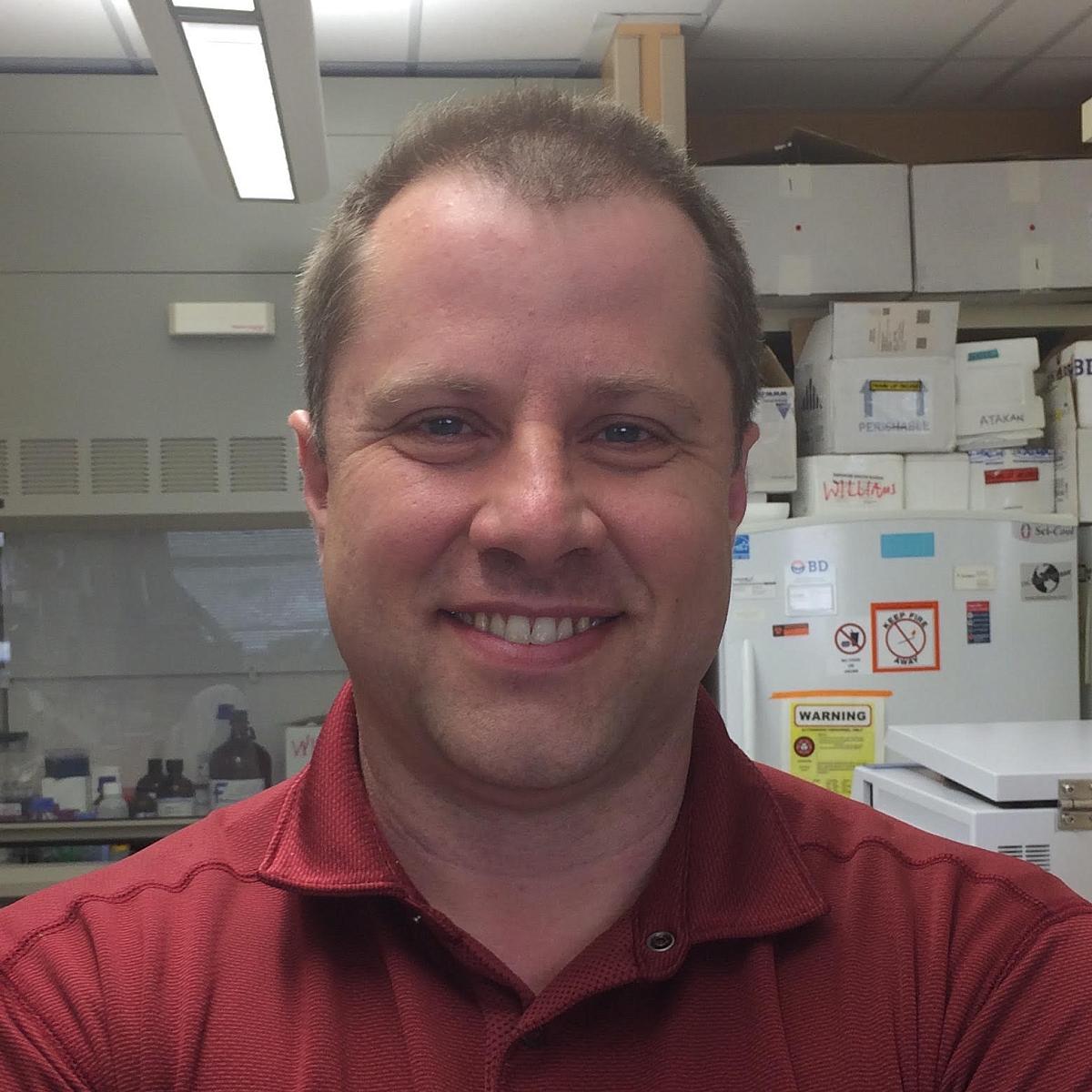The Immunology, Inflammation and Infectious Disease (III) Training Program seeks to bring together faculty and trainees across the University of Utah Health campus to foster collaborative research in basic and translational immunology. The main component of the III Training Program is individualized research training under the guidance of 30 faculty members in 9 basic and clinical departments across campus. The training program supports 4 pre-doctoral trainees. Pre-doctoral trainees who have completed their qualifying exam are eligible for up to 2 years of support, as selected by the Steering Committee from a large and highly competitive pool of candidates based on prior research excellence, a research proposal and letters of recommendation. Trainees will complete relevant coursework, participate in seminars and retreats, present their research in departmental settings, write a thesis proposal, perform thesis research, publish results and defend their thesis research.
In addition, the Training Program will enhance graduate education through the following activities:
- a one-month clinical immunology rotation at ARUP, the national pathology reference laboratory affiliated with the University of Utah;
- formal training in grant-writing, leading to submission of an extramural grant proposal;
- support for travel to present data at scientific meetings;
- regular lunchtime discussions of research progress with other Training Program trainees and mentors;
- interaction with invited speakers for the Immunology, Inflammation and Infectious Disease seminar series, as well as coordinating 1-2 student-invited speakers per year;
- annual presentation of research at the Microbiology and Immunology retreat or Immunology, Inflammation and Infectious Disease Symposium;
- guidance in the effective utilization of Individual Development Plans (IDPs) and individualized career guidance; and
- formal mentoring in the use of biostatistics related to immunological research. Given the exceptional training track record of our faculty, available resources to support research and robust institutional support, the III Training Program will provide an ideal platform to train the next generation of human disease-focused immunologists.
Dear Immunology Community,
We are pleased to announce that we are accepting applications from graduate students for the Immunology, Infectious Disease and Inflammation (3i) Training Grant (3iTG). The Training Grant will provide support for one year, with the potential to renew for a second year of support. We will be appointing 2 graduate student trainees this year. Some of the features of the training program include support for mentored research, a clinical immunology rotation at ARUP (pandemic permitting), training in data analysis and publishing, grant writing and career planning, mentored preparation and submission of F award proposal or equivalent, yearly presentation of data to the immunology community and partial support for travel to scientific meetings to present research findings.
Applications in all areas of immunology, including inflammation, host responses to pathogens, innate and adaptive immunity, tumor immunology, transplant immunology, autoimmunity, etc. will be considered. Applicants must successfully complete their departmental preliminary examination (usually during their 2nd year in the graduate program) prior to being appointed to the training program. While we will accept applications from students in the later stages of graduate training, most successful applicants will be in their 2nd or 3rd year in the graduate program (1st or 2nd year in their thesis research laboratory). Applicants must be U.S. citizens, non-citizen nationals or permanent residents with a valid green card.
Required components of the application include:
- 3-page summary (11 pt Arial font, 0.5 inch margins) of the proposed research project, including: specific aims, significance, preliminary results, figures (if any), research plan and references (references can exceed the 3 page limit);
- CV with a list of educational experiences and publications;
- One page outline of the candidate’s career goals;
- Unofficial or copied transcripts of graduate course grades; and
- Two letters of recommendation, including one from the training mentor.
Please submit materials and have letters sent directly to Alysha Stanton (alysha.stanton@path.utah.edu) by April 22, 2024. Please direct questions about the training program to Dr. Brian Evavold (brian.evavold@path.utah.edu) or Dr. Matt Williams (matthew.williams@path.utah.edu).
Sincerely,
Brian Evavold and Matt Williams
3iTG Program Directors
Information to come
Faculty Mentors
| Name | Rank | Research Interest |
|---|---|---|
| Inflammation and Innate Immunity | ||
| Brenda Bass | Prof., Biochem | RNA-induced inflammatory signaling |
| Ellen Beswick | Assoc. Prof., Medicine | Role of chronic inflammation in GI cancers |
| Jessica Brown | Assoc. Prof., M&I | Suppression of host immunity by C. neoformans |
| Allison Carey | Asst. Prof., M&I | Mycobacterial genetics and host inflammation |
| Nels Elde | Prof., Genetics | Co-evolution of host-pathogen interactions |
| Kim Evason | Asst. Prof., Pathology | Inflammatory mechanisms of liver tumorigenesis |
| Gianna Hammer | Assoc. Prof., M&I | Function of innate immune cells in the GI tract |
| Michael Kay | Prof., Biochem | Drug discovery for targeting inflammatory receptors |
| Aaron Petrey | Asst. Prof., M&I | Platelet-dependent inflammation |
| Janis Weis | Prof., M&I | Mechanisms of chronic Lyme arthritis |
| Mark Yandell | Prof., Genetics | Mechanisms of inflammatory dysregulation |
| Weiquan Zhu | Asst. Prof., Medicine | Regulation of vascular stability and inflammation |
| Adaptive Immune System Response and Function | ||
| Scott Hale | Asst. Prof., M&I | Differentiation and function of T helper cells |
| Keke Fairfax | Assoc. Prof., M&I | Adaptive immunity to helminth infection |
| Tracey Lamb | Assoc. Prof., M&I | Adaptive immunity to Plasmodium infection |
| Daniel Leung | Assoc. Prof., Medicine | Response of MAIT cells to mucosal infection |
| Wan-lin Lo | Asst. Prof., M&I | Mechanisms of TCR signaling regulation |
| Ryan O’Connell | Prof., M&I | microRNA-mediated control of adaptive immunity |
| Vicente Planelles | Prof., M&I | Mechanisms of HIV latency in memory T cells |
| June Round | Prof., M&I | Impact of microbiota on adaptive immune function |
| Koushik Roy | Asst. Prof., M&I | Transcriptional control of B cell activation |
| Matt Williams | Assoc. Prof., M&I | TCR-mediated control of T cell differentiation |
| Immune Tolerance and Autoimmunity | ||
| Anna Beaudin | Assoc. Prof., Hematology | Mechanisms regulating fetal immune development |
| Maria Bettini | Assoc. Prof., M&I | Functions of autoreactive T cells in Type I diabetes |
| Matt Bettini | Assoc. Prof., M&I | Establishment and maintenance of T cell tolerance |
| Brian Evavold | Prof., M&I | TCR-mediated selection of autoreactive T cells |
| Hans Haecker | Prof., M&I | Immunopathogenesis of inflammatory disease |
| Dean Tantin | Prof., M&I | Transcriptional control of autoreactive T cells |
| Melodie Weller | Asst. Prof., Dentistry | Environmental triggers of Sjogren’s syndrome |
| Tumor Immunity and Immunotherapy | ||
| Mingnan Chen | Assoc. Prof., Pharm | Design of drug carriers for cancer immunotherapy |
| Allie Grossman | Assoc. Prof., Pathology | Molecular control of tumor immune environment |
| Melissa Reeves | Asst. Prof., M&I | Tumor heterogeneity and anti-tumor immunity |
| Minna Roh-Johnson | Asst. Prof., Biochem | Inflammatory control of cancer cell decision-making |
| Matt Van Brocklin | Assoc. Prof., Surgery | Identification of molecular targets for immunotherapy |
| K-T Varley | Assoc. Prof., Onc. Sci. | Cancer cell epigenetic regulation and tumor immunity |
| Alana Welm | Prof., Onc. Sci. | Ron kinase-mediated control of anti-tumor immunity |
| Arabella Young | Asst. Prof., M&I | Mechanisms of immunotherapy-induced toxicities |
The receptor tyrosine kinase RON as a potential therapeutic target in treating metastatic cancer. The Ron gene gives rise to two different transcripts, encoding for a full-length RON (FL-RON) and a short-form RON (SF-RON). Breast cancer cells and macrophages express both FL-RON and SF-RON, while T cells express only SF-RON. The Welm lab has recently discovered that anti-tumor effects in mice lacking SF-RON (RON SF-/-) is mediated by highly active CD4+ and CD8+ T cells in a breast cancer lung metastasis model. This was the first study implicating the role of host SF-RON in anti-tumor immunity and the prospect of host SF-RON being an immunotherapeutic target. Preliminary data from our lab indicate that loss of SF-RON also protects from breast cancer bone metastasis and concomitant bone loss, but the mechanism of this protection is unknown. As we have recently observed T cell-mediated anti-tumor effects in the lung, a similar mechanism may occur in the bone; however, there is niche-specific regulation of immune responses. RON also has a function in specialized cells of the bone. In a RON tyrosine kinase domain knockout (TK-/-) model, which affects the function of both FL- and SF-RON, osteoclasts have decreased resorption activity in different diseases; however, the specific role of SF-RON in osteoclast activity needs further study. Clint is testing whether specific loss of SF-RON dually provides anti-tumor immunity in the bone and regulates osteoclast function, which protects from tumor growth. His project will thus elucidate the potential dual therapeutic effects when targeting SF-RON.
Coming Soon!
Coming Soon!
Coming Soon!
Coming Soon!
| Trainee Name | Appt Start | Appt End |
|---|---|---|
| Mellema, Rebecca | 09/01/2021 | 07/31/2023 |
| Otsuka, Kelly | 08/01/2021 | 07/31/2023 |
| Andersen, Jared | 08/01/2021 | 07/31/2023 |
| Orozco Figueroa , Stephanie | 08/01/2020 | 07/31/2022 |
| Charley, Krystal | 08/01/2020 | 07/31/2022 |
| Jensen, Owen | 08/01/2019 | 07/31/2021 |
| Faust, Michael | 08/01/2019 | 07/31/2021 |
| Bauer, Kaylyn | 11/01/2018 | 10/31/2020 |
| Baessler, Andrew | 11/01/2018 | 10/31/2020 |
CONTACT US
Alysha Stanton - Program Coordinator
Phone: 801-581-2408
Email: alysha.stanton@path.utah.edu

